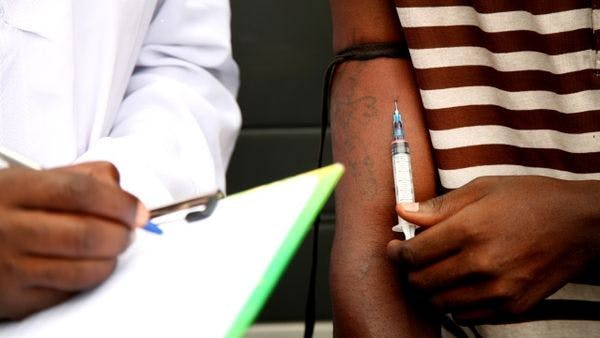Hepatitis C and the war on drugs
Globally, an estimated 10 million people who inject drugs are living with hepatitis C – with prevalence as high as 90 per cent in some places with the harshest drug policies.
In many parts of the world, injecting drug use is driving hepatitis C epidemics. Not only is the use of unsterile injecting equipment a highly efficient method of transmission for the virus, but the situation is made much worse by the legal and social environment in which these injections occur.
In almost every country, people who use drugs are criminalised, stigmatised and demonised. They are harassed by the police, ostracised by health workers, detained, bribed, tortured and beaten. They rarely have sufficient access to health services, and even when they do they can be understandably reluctant to access prevention, testing and treatment.
This is just one of the negative impacts of the so-called “war on drugs” – a repressive, punitive approach to drugs implemented in the vain hope of achieving a drug-free world. Despite their focus on “the health and welfare of mankind”, the current international drug control conventions have allowed countries to focus their energy and money on law enforcement rather than public health. In practice, this has led to a war on people who use drugs – resulting in mass incarceration, executions and extrajudicial killings around the world.
Last year, the Global Commission on Drug Policy – an independent group of high-profile public figures including Kofi Annan, Richard Branson, Michel Kazatchkine and the former leaders of Brazil, Chile, Colombia, Greece, Mexico, Poland, Portugal and Switzerland – launched a report that documents the links between drug policies and hepatitis, and calls for major reforms in order to undo the damage that has been done.
They recommended that governments act decisively and fast, acknowledging the hepatitis C epidemic among people who inject drugs, redirecting funding into health services rather than criminal justice systems, and ending the criminalisation of drug use and possession for personal use.
Speaking at the time of the report, Ruth Dreifuss (Global Commissioner, and former President of Switzerland) said “The war on drugs is a war on common sense. The hepatitis C epidemic, totally preventable and curable, is yet another proof that the drug policy status quo has failed us all miserably”.
The theme for this year’s World Hepatitis Day is ‘Think Again’. Amidst the global calls for more testing and more affordable treatment, spare a thought for those who cannot safely access health services, who are systematically denied treatment and simple ‘harm reduction’ services that can halt the spread of the virus.
Take some time to think also about the US$100 billion that is estimated to be spent on global drug law enforcement every year – how much hepatitis prevention, treatment and care could be funded if just a small amount of this money was redirected.
The “war on drugs” does not work: drug markets are as strong now as they ever have been. So why is more scrutiny not being given to the public spending on an ineffective, outdated and harmful policy?
According to the UN’s own figures, more than half of all people who inject drugs are living with hepatitis C. Until we stop criminalising these individuals, we cannot prevent this “viral time bomb” from exploding.
Jamie Bridge is Senior Policy and Operations Manager at the International Drug Policy Consortium and is currently Chair of the National Needle Exchange Forum in England.
Keep up-to-date with drug policy developments by subscribing to the IDPC Monthly Alert.
Topics
Regions
Related Profiles
- International Drug Policy Consortium (IDPC)
- Jamie Bridge
- Médecins du Monde (MDM)
